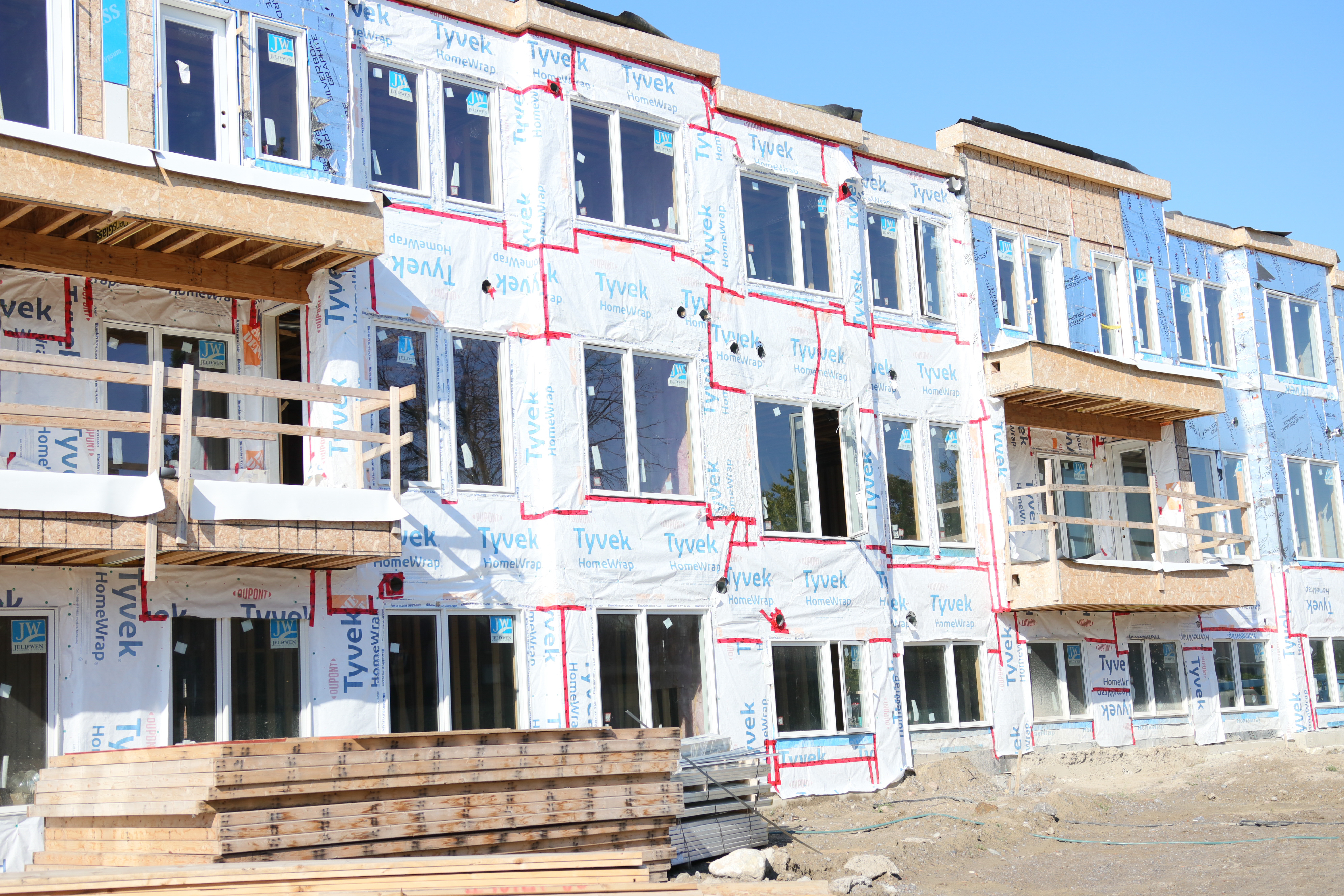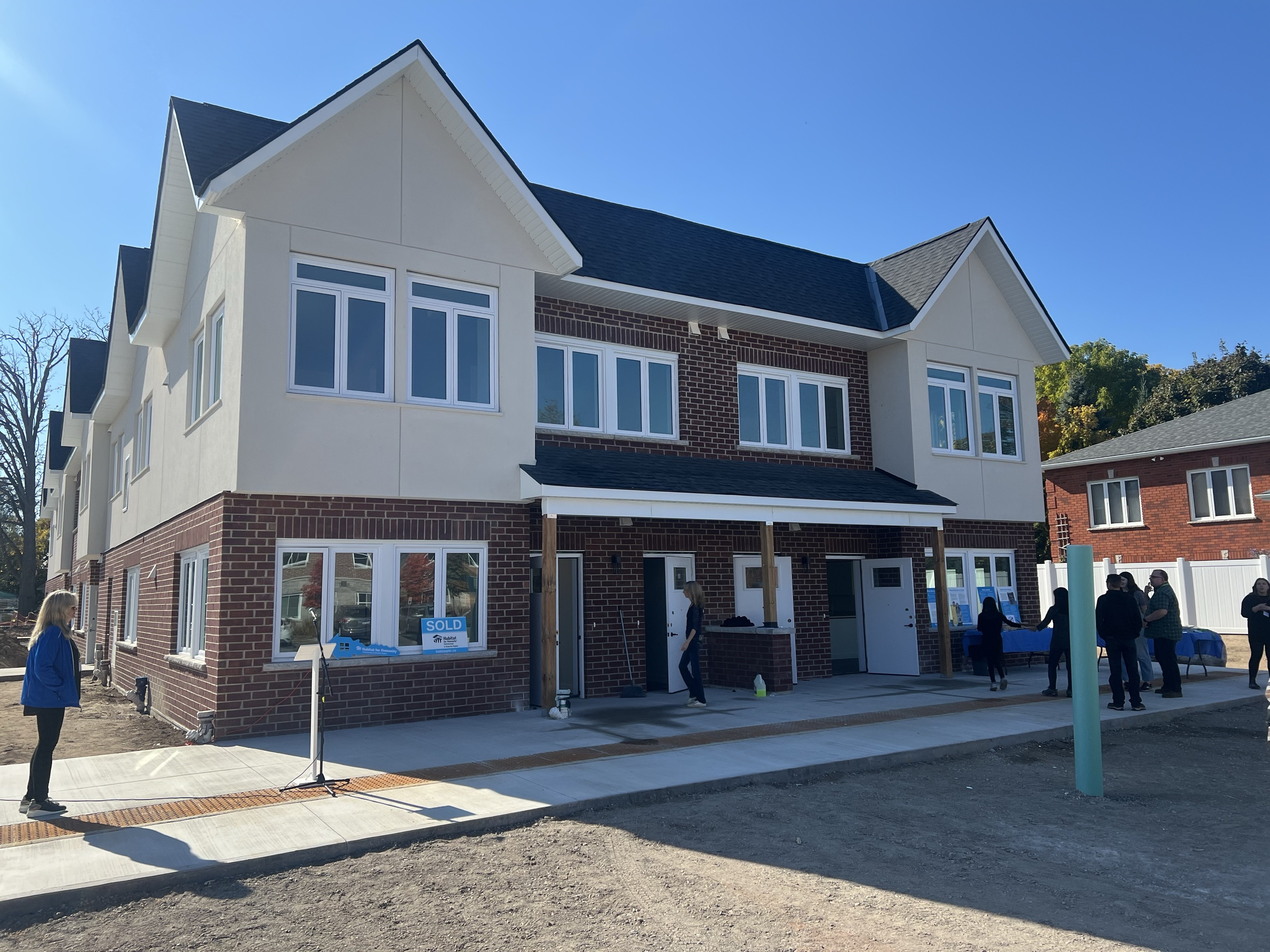What if everyone in Canada had a safe and affordable place to call home?
As we mark National Housing Day on November 22 and as the housing affordability crisis deepens and further divides Canadians, it is time for us to recognize that our communities are in trouble, with too many people struggling to stay properly housed.
Forty per cent of Canadians are concerned about being able to pay their rent or mortgage over the next 12 months, according to Habitat for Humanity Canada’s Affordable Housing Survey. And four in five worry about having to spend less on food, savings, transportation and/or debt payments to pay for the roof over their heads.
Looking at generational differences, millennials are more than twice as likely as boomers to worry about paying rent or mortgages. Millennials make up the largest percentage of renters in Canada and they are the most pessimistic that Canada’s housing woes can be solved. That’s not too surprising, given that millennials are adults with young kids and established careers who expected that, by now, they would have the kinds of things their parents had – like an affordable home.
Now consider those most affected by the housing crisis - people who are finding it harder than ever to access stable, safe and affordable housing and put food on the table – and for whom homeownership has always been out of reach. Sixty-eight per cent of Canadian food bank users live in market rentals and, according to Food Banks Canada, they list housing costs as one of the top drivers of their food bank usage. It’s no wonder – the average rent in Canada was up 15.4 percent over the previous year, bringing the average monthly total to $2,024 a month.
Every aspect of the housing continuum – from homeless shelters to affordable housing, market rentals and homeownership – is under increasing strain, making it impossible for people to move along it. We must invest in all types of housing, and tackle the barriers to getting it built: zoning laws that don’t allow density and increased supply; municipal red tape that ties up developments, including affordable housing, for years; and the lack of affordable land. Municipalities that are increasing density, making it easier to build housing, and designating land for affordable housing will reap the benefits of having vibrant, prosperous and inclusive communities.
The issue of housing also divides neighbourhoods. Half of Canadians we asked felt that Not In My Backyard or NIMBY sentiment is one of the main barriers to making affordable housing available in neighborhoods, and 71 per cent agreed that ‘people worry about the impact of affordable housing on their property values and neighborhood’. Yet time and time again, studies show that well integrated affordable housing does not negatively affect property values and can actually benefit them. Canadians need to rethink their assumptions about what makes for a thriving neighbourhood and embrace the upsides of communities where everyone can live. After all, who wants to live in a place where vital and familiar services aren’t available because the staff they need have nowhere to live?
What Canadians do agree on is that housing matters. Let’s start there. We all need an affordable place to call home. And three-quarters of Canadians believe that more affordable housing could solve the social issues we are facing as a country. They’re right. If we come together to address the housing crisis, we will be better positioned to solve other societal issues. Having access to a home with an affordable and stable cost – whether it is through rent or a mortgage – allows people to build financial stability. The experience of Habitat homeowners shows that when people no longer have to worry about whether to pay rent or put food on the table, they can focus on improving their economic opportunities, pursue additional education, and save for their child’s education. Knowing that 75 per cent of Canadians believe that too, is a hopeful sign that things will change.
We are a country of communities, and we all have a stake and a role to play in making our communities prosperous, welcoming, and inclusive, with safe and affordable homes for all. This is going to take an all-in approach from non-profits, businesses, and all levels of government, and the support and encouragement of individuals. We are all accountable for building better communities.
A better Canada begins with housing. And better housing begins with all of us.



